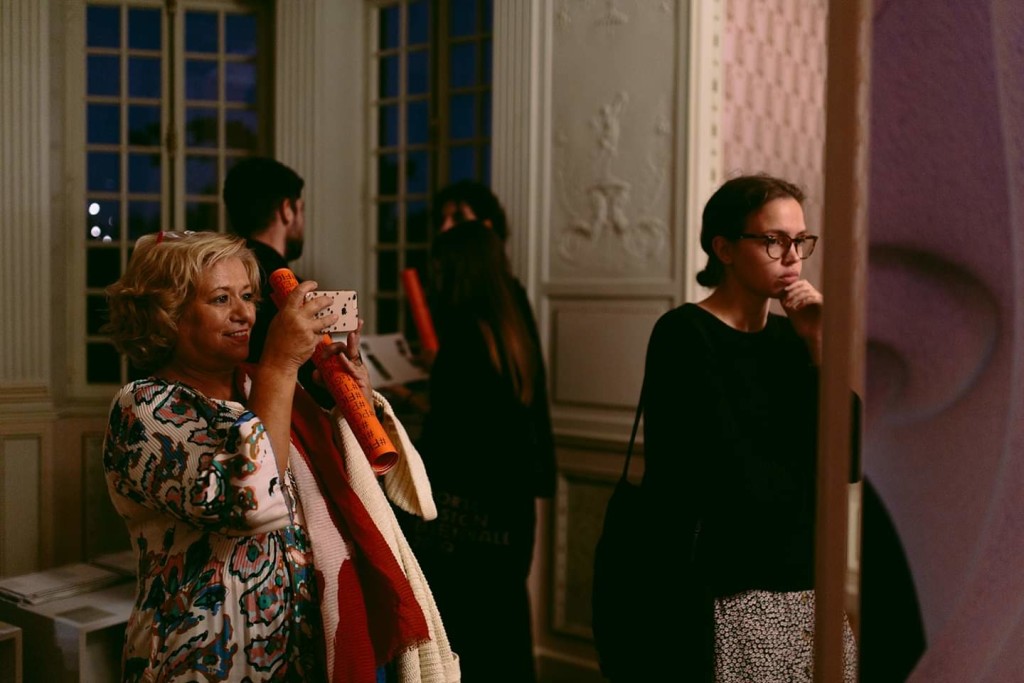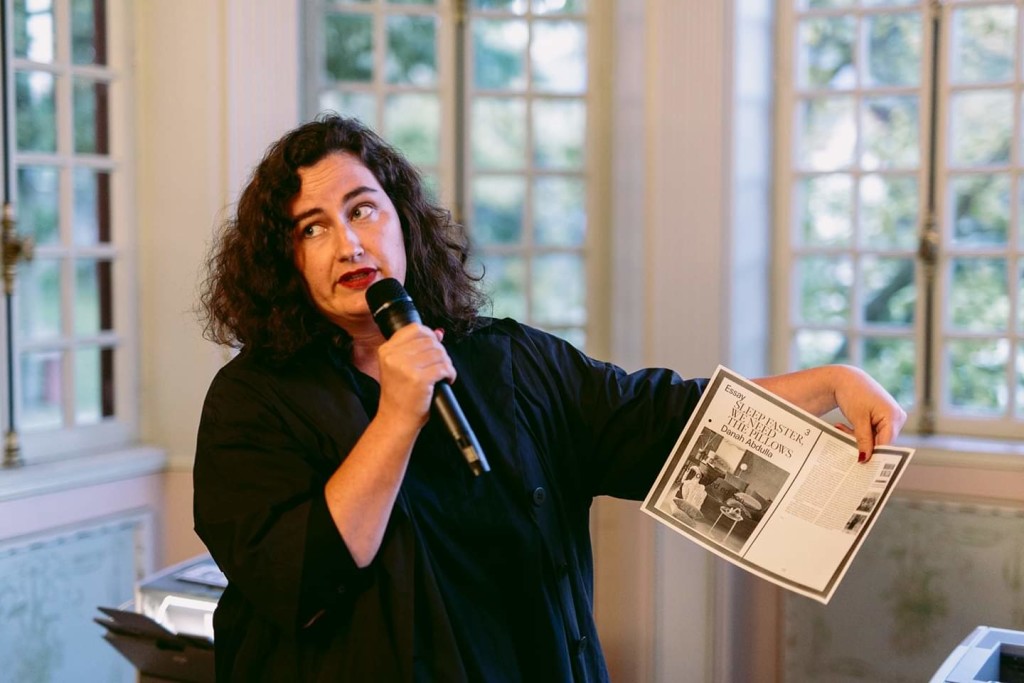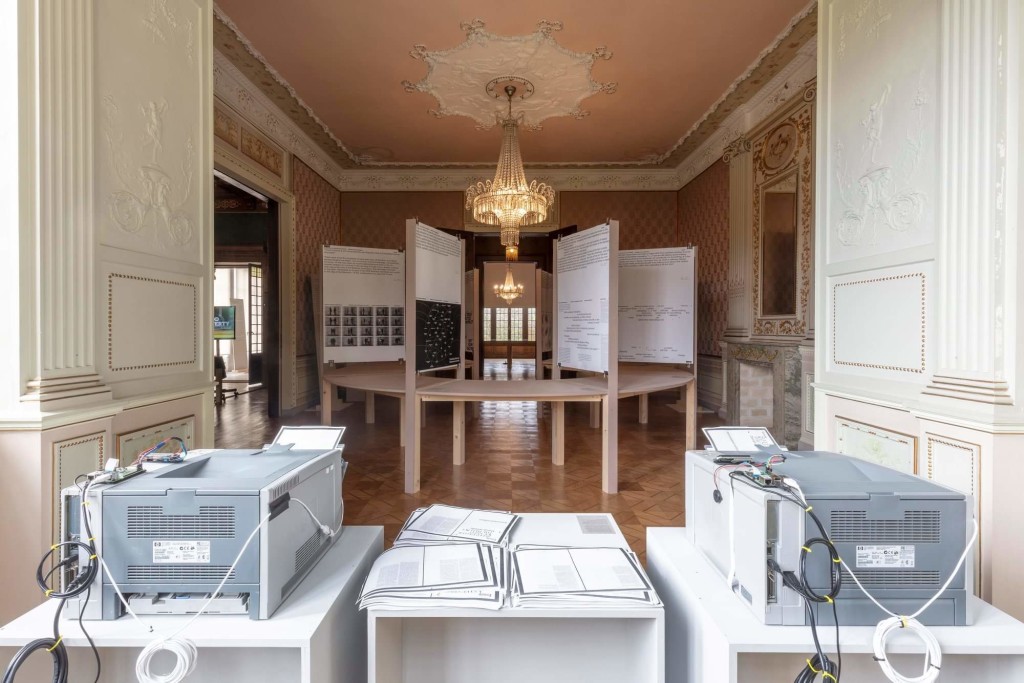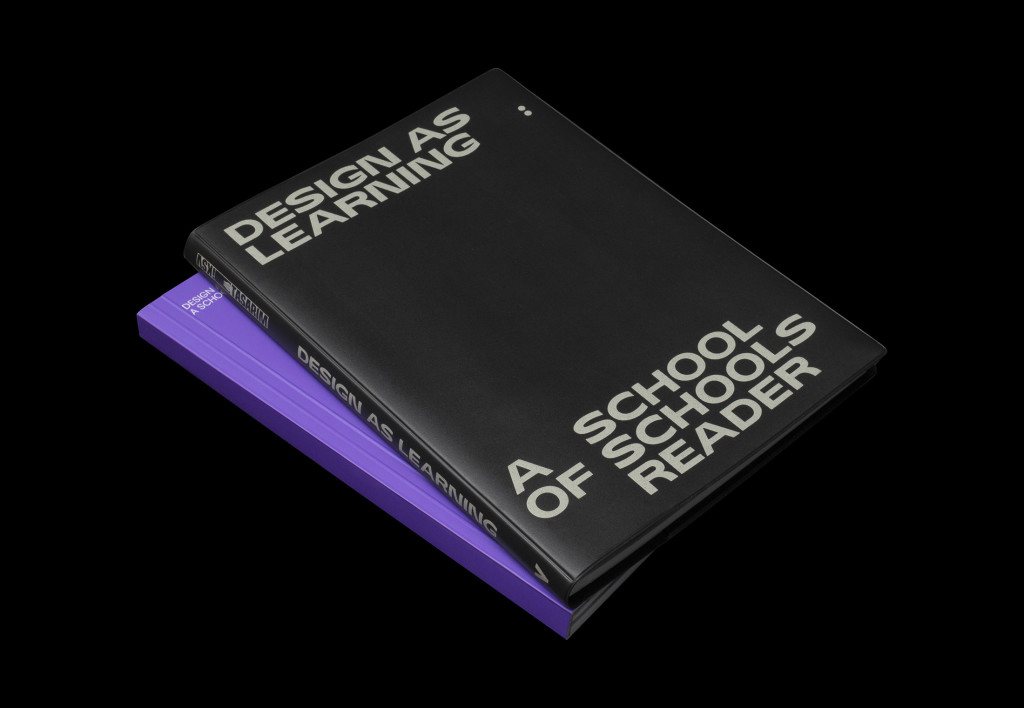
The opening of Fiction Practice: Young Curator’s Lab at the Porto Design Biennale. Photo courtesy Porto Design Biennale.
During this year’s inaugural Porto Design Biennale, curator Mariana Pestana invited Jan Boelen and myself to lead a workshop as part of Fiction Practice: Young Curator’s Lab. The three-day workshop ended in an exhibition at the Casa Museu Quinta de Santiago, in the vicinity of Porto. The workshop took as a starting point the Design As Learning: A School of Schools Reader publication, produced on the occasion of the 4th Istanbul Design Biennial, A School of Schools.
Through a series of group readings, discussions and site visits, we looked at design education from a wide variety of angles, from its power structures to the spaces where it takes place, and considered how various alternative pedagogical models have been implemented throughout time. These readings, visits and reflections were then re-thought, re-hashed and re-edited to form new reflections and alternative pathways for design, education and design education.Â
As the workshop came to an end, participants selected specific issues found in Design as Learning to comment on, enriched by the insights of our time together. This materialized in a “re-editâ€, which was expertly translated into a poster format by Zurich-based design office Offshore Studio. At the end of the workshop, our space of encounter was transformed into a space of display, and each poster hung above our roundtable, in dialogue with one another. This was a snapshot of what had happened, a summary of the scope of our discussions, a series of conversation pieces. But because we did not want the discussion to end with the workshop, or to be accessible only to those who had taken part, we invited Dutch designer Teis de Greve to contribute to our installation with an iteration of his A Ditto, Online Device project, specifically customized to respond to the essays of Design as Learning.Â

Introducing the project by Teis de Greve –A Ditto, Online Device. Photo courtesy Porto Design Biennale.
 View of the Design as Learning: Re-edit room at Fiction Practice: Young Curator’s Lab. Photo courtesy Porto Design Biennale.
View of the Design as Learning: Re-edit room at Fiction Practice: Young Curator’s Lab. Photo courtesy Porto Design Biennale.
 View of the Design as Learning: Re-edit room at Fiction Practice: Young Curator’s Lab. Photo courtesy Porto Design Biennale.
View of the Design as Learning: Re-edit room at Fiction Practice: Young Curator’s Lab. Photo courtesy Porto Design Biennale.
